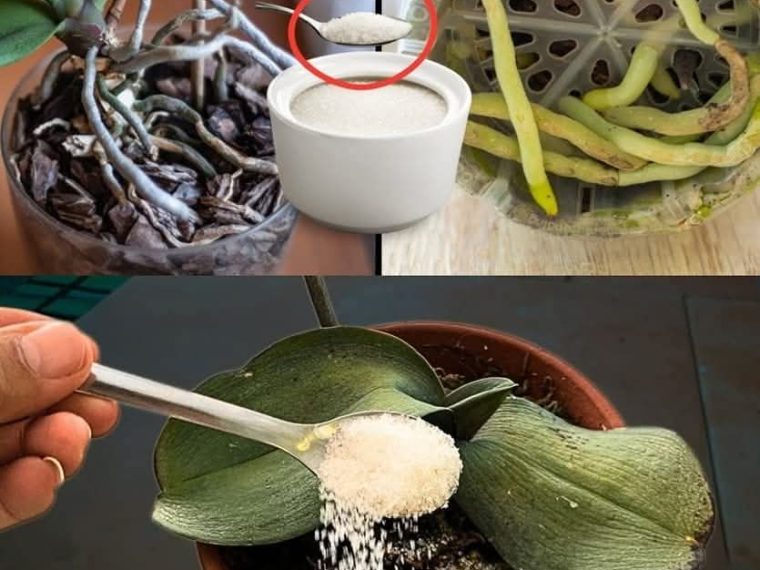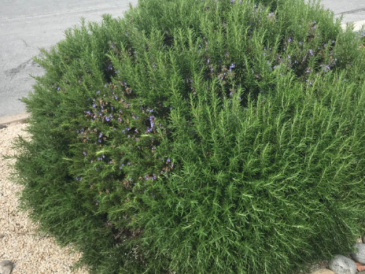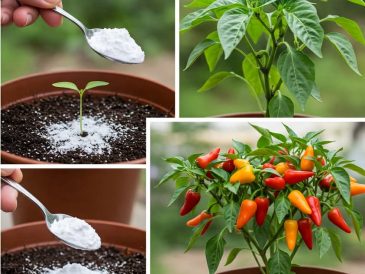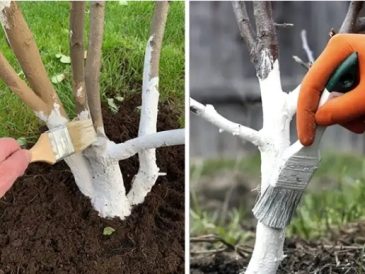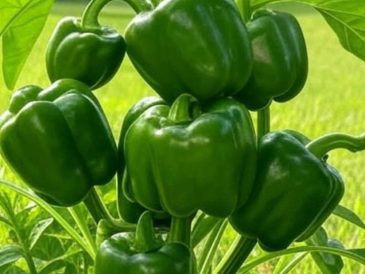Gardening enthusiasts are always on the lookout for effective and sustainable ways to nurture their plants. While there are countless commercial fertilizers available, many gardeners are turning to natural solutions that can be found right in their kitchens. These natural fertilizers not only promote plant growth but are also eco-friendly, cost-effective, and free of harmful chemicals. In this article, we’ll explore various kitchen ingredients that can serve as powerful fertilizers to help your plants thrive.
1. Coffee Grounds: A Boost for Acid-Loving Plants
Coffee grounds are a fantastic source of nitrogen, which is essential for plant growth. They also contain small amounts of other nutrients like potassium and phosphorus. Acid-loving plants, such as azaleas, rhododendrons, and blueberries, particularly benefit from coffee grounds.
How to use:
- After brewing your coffee, allow the grounds to cool.
- Sprinkle them around the base of your plants or mix them into the soil.
- Alternatively, you can add them to your compost pile to enrich the compost with additional nutrients.
Benefits:
- Enhances soil structure and increases its ability to retain moisture.
- Attracts beneficial earthworms to your garden.
- Helps in deterring pests like slugs and snails.
2. Eggshells: Calcium-Rich Fertilizer
Eggshells are an excellent source of calcium, a nutrient that is crucial for the development of strong cell walls in plants. Calcium deficiency can lead to problems like blossom end rot in tomatoes and peppers, making eggshells an essential addition to your garden.
How to use:
- Rinse eggshells thoroughly and let them dry.
- Crush them into small pieces or grind them into a fine powder.
- Sprinkle the crushed shells around the base of your plants or mix them into the soil.
Benefits:
- Provides a slow-release source of calcium.
- Helps in balancing the pH level of the soil.
- Acts as a natural deterrent for pests like slugs and snails.
3. Banana Peels: Potassium Powerhouse
Banana peels are rich in potassium, an essential nutrient that supports overall plant health, strengthens roots, and enhances flowering and fruiting. They also contain small amounts of calcium, magnesium, and phosphorus.
How to use:
- Chop banana peels into small pieces and bury them in the soil near the roots of your plants.
- Alternatively, you can soak banana peels in water for a few days to create a nutrient-rich “banana peel tea” that can be used to water your plants.
Benefits:
- Promotes healthy root development.
- Encourages vibrant blooms and increased fruit production.
- Adds organic matter to the soil, improving its texture and fertility.
4. Used Tea Leaves: Nitrogen and Organic Matter
Used tea leaves, like coffee grounds, are a great source of nitrogen. They also contain tannins, which can help in breaking down organic matter in the soil, making nutrients more available to plants.
How to use:
- After brewing your tea, remove the used leaves from the bag (if using tea bags) and allow them to cool.
- Sprinkle the leaves around your plants or mix them into the soil.
- You can also add used tea leaves to your compost bin to enhance its nutrient content.
Benefits:
- Enriches the soil with nitrogen and other essential nutrients.
- Improves soil structure and water retention.
- Helps in creating a healthy, nutrient-rich environment for your plants.
5. Vegetable and Fruit Scraps: Compost Gold
Vegetable and fruit scraps are among the most versatile natural fertilizers you can find in your kitchen. When composted, they break down into nutrient-rich organic matter that can be used to nourish your garden.
How to use:
- Collect vegetable and fruit scraps such as peels, cores, and trimmings.
- Add them to your compost bin or pile, along with other organic materials like leaves, grass clippings, and coffee grounds.
- Once the compost has fully decomposed into a dark, crumbly soil-like substance, use it to enrich your garden soil.
Benefits:
- Provides a balanced blend of essential nutrients, including nitrogen, phosphorus, and potassium.
- Improves soil fertility and promotes healthy plant growth.
- Reduces kitchen waste and promotes sustainable gardening practices.
6. Epsom Salt: A Magnesium and Sulfur Supplement
Epsom salt, also known as magnesium sulfate, is an excellent natural fertilizer that provides plants with magnesium and sulfur. These nutrients are crucial for photosynthesis and the production of chlorophyll.
How to use:
- Dissolve 1-2 tablespoons of Epsom salt in a gallon of water.
- Use this solution to water your plants once a month, or sprinkle Epsom salt directly around the base of your plants and water thoroughly.
Benefits:
- Enhances nutrient absorption and promotes healthy plant growth.
- Encourages the production of chlorophyll, resulting in greener, more vibrant leaves.
- Improves flowering and fruiting, especially in plants like tomatoes, peppers, and roses.
Conclusion
Utilizing natural fertilizers from your kitchen is a simple and effective way to boost the growth and health of your plants. Not only do these ingredients provide essential nutrients, but they also promote sustainable gardening practices by reducing waste and minimizing the need for chemical fertilizers. Whether you’re a seasoned gardener or just starting, these kitchen-based solutions can help you achieve a thriving, vibrant garden without breaking the bank. So next time you’re in the kitchen, think twice before throwing away those coffee grounds, eggshells, or banana peels – your plants will thank you!

